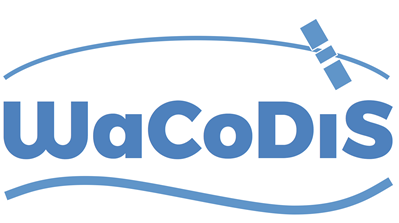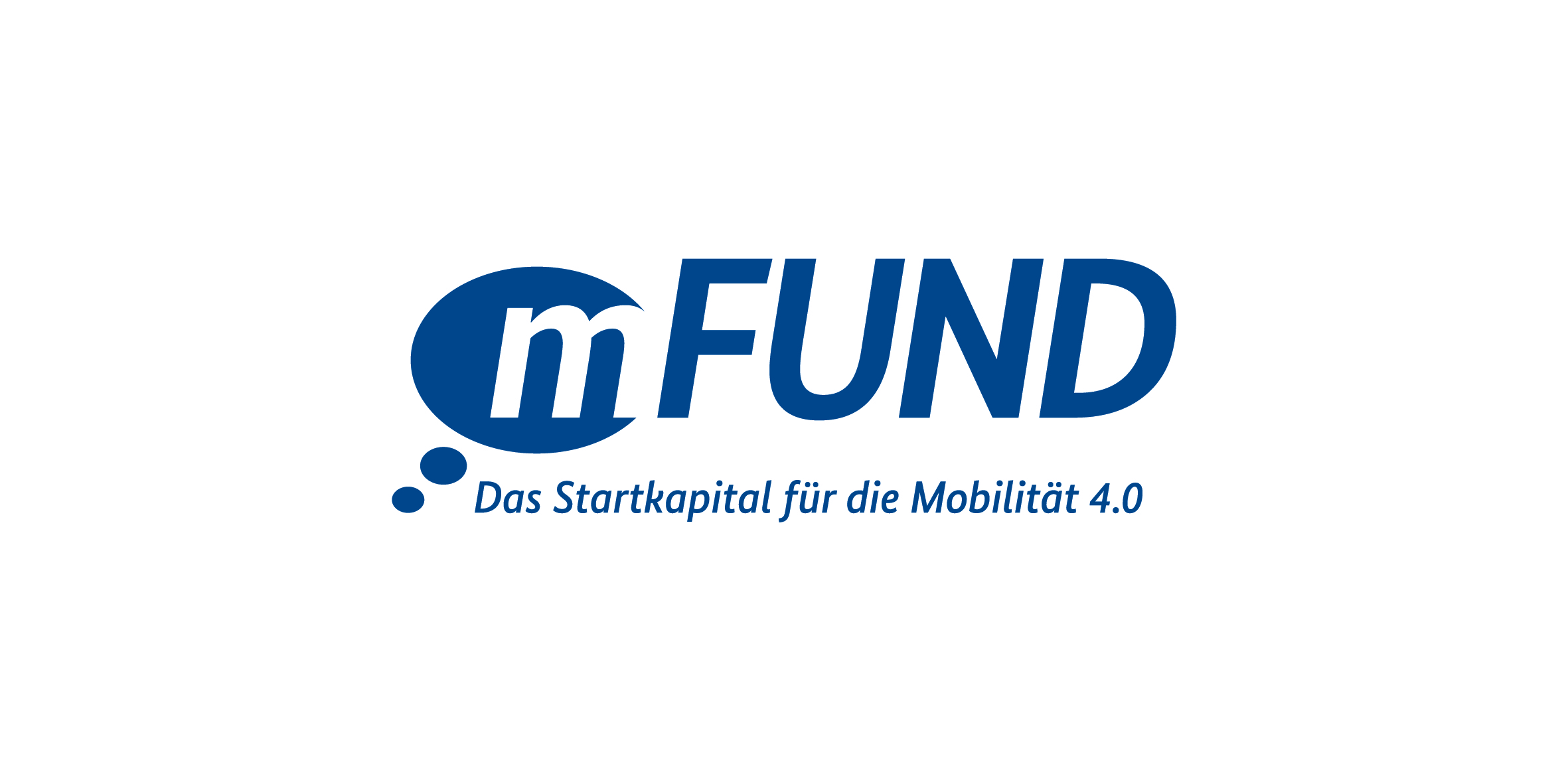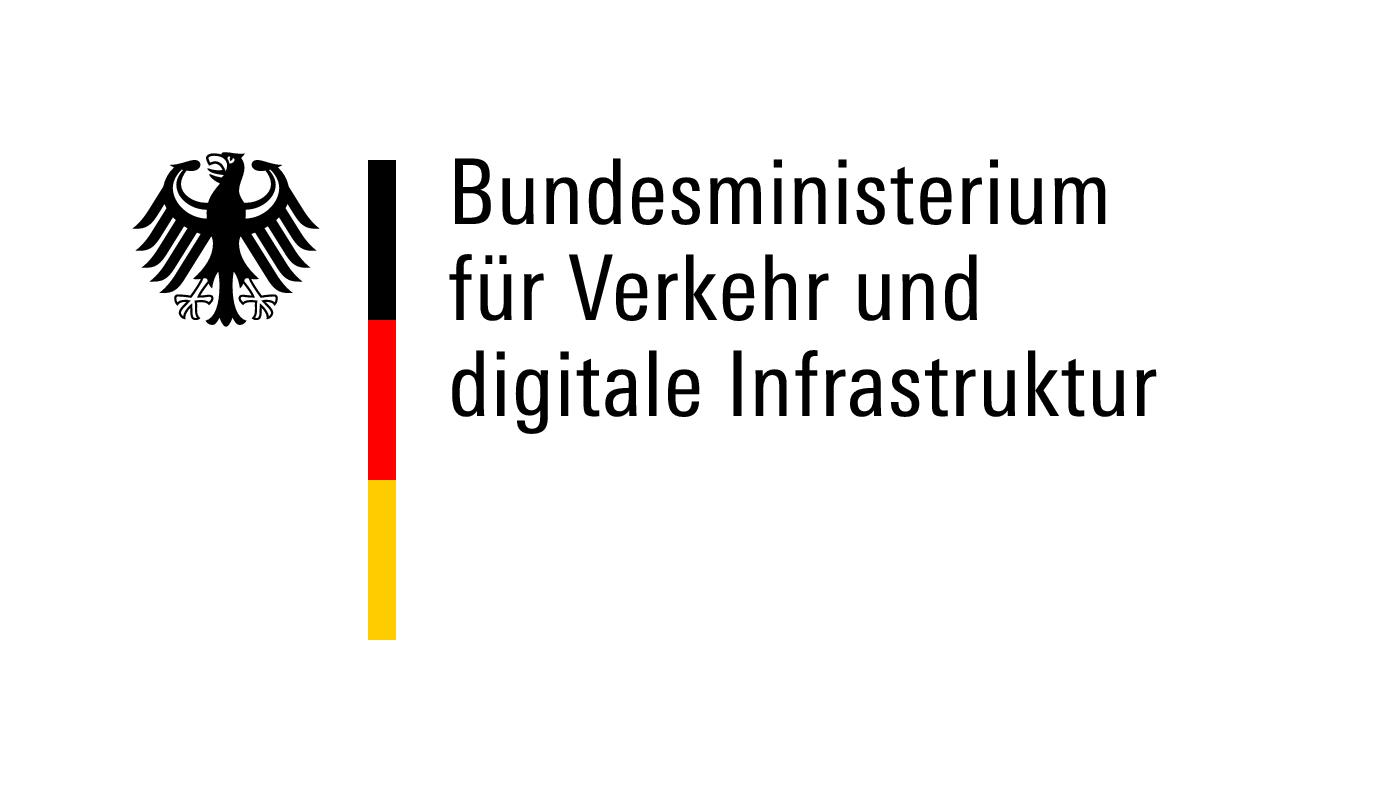This projects implements a REST API that persists and manages metadata from all relevant datasets and datasources within the WaCoDiS monitoring system.
- WaCoDiS Project Information
- Overview
- Installation / Building Information
- User Guide
- Developer Information
- Contact
- Credits and Contributing Organizations
For a detailed overview about the WaCoDiS system architecture please visit the WaCoDiS Core Engine repository.
WaCoDiS Data Access offers the capabilities to search the metadata of available data sets. For metadata that match the search criteria, the WaCoDiS Data Access generates resources that reference the actual data sets. WaCoDiS Data Access comprises a storage that contains the metadata of the available data sets. The metadata storage is realized by an Elasticsearch search index. WaCoDiS Data Access is a web service that allows not only the search for resources but also data management (add, update or delete metadata). Within the WaCoDiS system, WaCoDiS Data Access is used to obtain retrievable resources for input data required for automated data processings.
- DataEnvelope
The metadata about an existing dataset is described by the AbstractDataEnvelope (DataEnvelope) data format. There are different subtypes for different data sources (e.g SensorWebDataEnvelope or _CopernicusDataEnvelope). - Resource
Access to the actual data records is described by the AbstractResource (Resources) data format. There are the subtypes GetResources and PostResources. A GetResources contains only a URL while a PostResource contains a URL and a body for a HTTP-POST request. - Job
A WacodisJobDefinition (Job) describes a processing that is to be executed automatically according to a defined schedule. The WacodisJobDefinition contains (among other attributes) the input data required for execution, as well as the time frame and area of interest. - SubsetDefinition
The required inputs of a job are described by the data format AbstractSubsetDefinition (SubsetDefinition). Ther are different subtypes for different types of input data (e.g SensorWebSubsetDefinition or CopernicusSubsetDefinition). There is usually a subtype of AbstractSubsetDefinition that corresponds to a subtype of AbstractDataEnvelope.
In the terminology of WaCoDiS: WaCoDiS Data Access' purpose is to find stored DataEnvelopes that match specific SubsetDefinitions. If suitable DataEnvelopes are found, the WaCoDiS Data Access creates GetResources or PostResources which are used to retrieve the actual data. The search criteria usually result from the attributes of a WacodisJobDefinition.
The formal definition of these data types is done with OpenAPI and is available in the apis-and-workflows repo.
The WaCoDiS Data Access project consists of three (maven) modules.
- WaCoDiS Data Access API
This module implements the Data Access REST API specified with OpenAPI. - WaCoDiS Data Access DataWrapper
This module is responsible for retrieving, modifying and searching data from the metadata storage (Elasticsearch Index). Furthermore, the Data Wrapper module implements the conversions of DataEnvelopes (Metadata) that are stored in the metadata storage into Resources that contain a reference to the usable data set.
The conversion is currently not yet implemented for all data types.
The connection to Elasticsearch is realized with Elasticsearch Java High Level REST Client. - WaCoDIS Data Access Models
This module contains Java classes that reflect the basic data model. This includes the data types specified with OpenAPI in the WaCoDiS apis-and workflows repository.
WaCoDIS Data Access provides a REST API for managing DataEnvelopes and searching Resources.
The OpenAPI Specfication of the data access API can be found in the WaCoDiS APIs and Workflows repository. While the data access web service is running interactive API description is available at localhost:8080. The OpenAPI specifications for data types (DataEnvelope, SubsetDefinition, Resource, WacodisJobDefinition...) can be found in the WaCoDiS APIs and Workflows repository.
Endpoints:
- /resources/search
Used for finding available Resources that match SubsetDefinitions. The body for a HTTP-Post request contains a DataResourceAccessSearchBody which defines a spatial extent, a time frame and a list of SubsetDefinition. The service's response is a map which uses the transmitted SubsetDefinitions as keys and lists of matching resources as values. Resources can be either GetResources which contain a URL that references the actual data directly or a PostResources which contains a URL and a HTTP-Post body. - /dataenvelopes
Used for adding new DataEnvelopes to the metadata storage. The DataEnvelope to add is contained in the body of a HTTP-Post request. The identifier attribute of a DataEnvelope is assigned by the Data Access Service. The response contains the newly added DataEnvelope including the assigned identifier. - /dataenvelopes/{id}
The HTTP-GET method of this endpoint is used for retrieving a DataEnvelope by its identifier (which was assigned by Data Access when adding the DataEnvelope to the metadata storage).
The HTTP-PUT method of this endpoint is used for updating stored DataEnvelopes which already have an indentifier assigned by Data Access.
The HTTP-Delete method of this endpoint is used for removing DataEnvelopes from metadata storage. - /dataenvelopes/search
Used for finding stored DataEnvelopes. A DataEnvelope is send to the service via HTTP-POST request. The service checks if a DataEnvelope with the same values is already exisiting in the metadata storage. If a matching DataEnvelope is found the indentifier ot this DataEnvelope is returned by the serivce. - The /dataenvelopes/explore endpoint can be used for querying the metadata catalog that is managed by data access api via HTTP-POST request. Compared to the dataenvelopes/search endpoint this endpoint allows abitrary query parameters instead of searching for stored, exactly matching DataEnvelopes. The query must be strutucred according to the DataEnvelopeQuery datatype. The response is a list of matching DataEnvelopes (empty list if no matching DataEnvelope is found).
WaCoDiS Core Engine use Data Access API to validate whether a WaCoDiS Job (WacodisJobDefinition) can be executed. Using data access, the core engine can check if all input data sets needed to execute a job exist. Within a WacodisJobDefinition SubsetDefinitions are used to describe inputs. Further a WacodisJobDefinition contains information about spatial and temporal extent of interest. By posting requests to the /resources/search endpoint WaCoDiS Core Engine is able to find all available data that match a job definition. The response by the service contains Resources which provide references (URL) to data sets.
WaCoDiS Metadata Connector adds new DataEnvelopes (metadata of available data sets) to the metadata storage by sending requests to the Data Access API. Before adding new a new DataEnvelope the Metadata Connector checks if a similar DataEnvelope is already stored by using the /dataenvelopes/search/ point. If no matching DataEnvelope is found Metadata Connector simply adds the new DataEnvelope by posting a DataEnvelope to the /dataenvelopes endpoint. If a matching DataEnvelope is found Metadata Connector uses the /dataenvelopes/{id} endpoint to update stored entries.
- Java
WaCoDiS Data Access uses (as most of the WaCoDiS components) the java programming language. WaCoDiS Data Access is tested with Oracle JDK 8 and OpenJDK 8. Unless stated otherwise later Java versions can be used as well. - Maven
The project WaCoDiS Data Access uses the build-management tool Apache maven - Spring Boot
WaCoDiS Data Access is a standalone application built with the spring boot framework. Therfore, it is not necessary to deploy WaCoDiS Data Access manually with a web server. - Elasticsearch
For storing metadata of available data set WaCoDiS uses the search engine technology Elasticsearch. Elasticsearch is not part of WaCoDiS Data Access and therefore must be deployed separately in order to run this application. - RabbitMQ
For communication with other WaCoDiS components of the WaCoDiS system the message broker RabbitMQ is utilized. RabbitMQ is not part of WaCoDiS Data Access and therefore must be deployed separately if WaCoDIS Data Access is deployed as part of the whole WaCoDiS system. - OpenAPI
OpenAPI is used for the specification of Data Access REST API and data models. - JSON
The WaCoDiS Data Access RESTful API serves data as json.
In order to build Data Access from source Java Development Kit (JDK) must be available. Data Access is tested with Oracle JDK 8 and OpenJDK 8. Unless stated otherwise later JDK versions can be used.
Data Access is a maven project. To build this project from source maven has to be installed.
- (optional) Build Data Models
The Wacodis Data Access Models submodule already contains java classes that are genereated from Wacodis Schemas. To manually generate classes from the schema definitions (e.g. to reflect changes to the schemas) follow the steps below.
- change directory to Data Access Models subfolder (data-access-api/data-access-models)
- run
mvn clean install -p download-generate-models
Two profiles are applicable for building data models module. The profile download-generate-models fetches the latest version of WaCoDiS Schema Definitions (OpenAPI) from Github and generates corresponding java classes. If another branch of the Wacodis schemas than the master branch is to be used for generating model classes, the URL in the pom.xml file must be changed accordingly. The profile generate-models gets the schema definitions from a local file and generates corresponding java classes. By default the schema definitions are expected in the modules resource folder (resources/definitions/wacodis-schemas.yml). Alternatively, the file path can be configured in pom.xml.
When building data models make sure to follow the instructions on updating Data Access Models.
- Build Data Wrapper and Data Access API
- change directory to the projects root directory (data_access_api)
-
- run
mvn clean install
- run
The Data Wrapper module must be built before the API module if both modules are built separately.
See run section for docker instructions.
This section describes deployment scenarios, options and preconditions.
- In order to run Data Access Java Runtime Environment (JRE) (version >= 8) must be available. In order to build Data Access from source Java Development Kit (JDK) version >= 8) must be abailable. Data Access is tested with Oracle JDK 8 and OpenJDK 8.
- A (running) instance of elasticsearch must be available.
- When running data access as part of the WaCoDiS system, a running instance of RabbitMQ message broker must be available. Otherwise communication with other WaCoDis components fails.
The server addresses are configurable.
- If configuration should be fetched from Configuration Server a running instance of WaCoDiS Config Server must be available.
Currently there are no pre-compiled binaries available for WaCoDiS Data Access. Data Access must be built from source. Alternatively Docker can be used to (build and) run WaCoDiS Data Access.
Data Access is a Spring Boot application. Execute the compiled jar (java -jar data-access-api.jar) or run org.openapitools.OpenAPI2SpringBoot.java in IDE (Module: WaCoDiS Data Access API) to start the data access service. By default the service is available on port 8080. Multiple ways to change the default port exist. If the service started successfully (see Preconditions) the API description for WaCoDiS Data Access is available on localhost:8080 (provided default port was not changed).
- Build Docker Image from Dockerfile that resides in the projects root folder.
- Run created Docker Image. A port binding for container port 8080 is necessary to make the service available.
(docker run -p 8080:8080 wacodis_data_access:latest)
Alternatively, latest available docker image (automatically built from master branch) can be pulled from Docker Hub. See WaCoDiS Docker repository for pre-configured Docker Compose files to run WaCoDiS system components and backend services (RabbitMQ and Elasticsearch).
During the start up process, data access automatically initializes a (Elasticsearch) search index that indexes metadata (DataEnvelopes) for available data sets. The index settings are defined in a json file which is by default /main/resources/elasticsearch_indexsettings.json. The mappings section of this file should not be altered because data access needs an index that matches those specifications. The location of the index settings file is configurable.
If index intitialization fails because of a connection error it is retried after a timeout. The max. number of retries and the timeout is configurable. This configuration parameters can be used in deployment scenarios (for example docker compose) if elasticsearch is not available before data access is started.
Configuration is fetched from WaCoDiS Config Server. If config server is not available configuration values defined in main/resources/bootstrap.yml are applied instead.
The following section contain descriptions for configuration parameters ordered by configuration section.
parameters related to the Resource API (/resources/...)
| value | description | note |
|---|---|---|
| elasticsearch/uri | elasticsearch server address | uri scheme must match http://host:port |
| elasticsearch/index | name of the index (containing DataEnvelopes) that should be queried | |
| elasticsearch/requestTimeout_Millis | request timeout (milliseconds) |
parameters related to the DataEnvelope API (/dataenvelopes/...)
| value | description | note |
|---|---|---|
| elasticsearch/uri | elasticsearch server address | uri scheme must match http://host:port |
| elasticsearch/index | name of the index (containing DataEnvelopes) that should be queried | |
| elasticsearch/requestTimeout_Millis | request timeout (milliseconds) | |
| elasticsearch/indexInitialization_RetryMaxAttempts | max attempts for index intitialization during start-up | see Elasticsearch Index Initialization |
| elasticsearch/indexInitialization_RetryDelay_Millis | delay between atempts for index intitialization during start-up (milliseconds) | |
| elasticsearch/indexInitialization_SettingsFile | location of settings file that is applied for index intitialization during start-up, if value is not provided default settings file from application resources is used |
parameters related to DataEnvelope acknowledgement messages
| value | description | note |
|---|---|---|
| destination | topic used for DataEnvelope acknowledgement messages | e.g. wacodis.dataenvelope.acknowledgment |
| binder | defines the binder (message broker) | see binders, does not have to be changed from wacodis_rabbit |
| content-type | content type of DataEnvelope acknowledgement messages (mime type) | see binders, does not have to be changed from application/json |
parameters related to WaCoDis message broker
| value | description | note |
|---|---|---|
| type | type of message broker | WaCoDiS uses RabbitMQ message broker |
| environment/spring/rabbitmq/host | RabbitMQ host (WaCoDiS message broker) | e.g. localhost |
| environment/spring/rabbitmq/port | RabbitMQ port (WaCoDiS message broker) | e.g. 5672 |
| environment/spring/rabbitmq/username | RabbitMQ username (WaCoDiS message broker) | |
| environment/spring/rabbitmq/password | RabbitMQ password (WaCoDiS message broker) |
This section contains information for developers. Extending Data Access describes how Data Access can be extended with new functionalities. Pending Developments lists enivsaged features that are not (fully) implemented yet.
Data Access must be modified if new types of DataEnvelope or SubsetDefintion are added to Wacodis schemas in order to support the newly introduced data types. See the Wiki for further information.
If the Wacodis data model changes, the classes in the Data Access Models module must reflect these changes. To do this, the model classes must be generated again (see build from source (optional) Build Data Models).
If the classes were created again, some annotations in these classes must be changed as follows.
- AbstractBackend.java
Change include propterty of annotation JsonTypeInfo to JsonTypeInfo.As.EXISTING_PROPERTY.
@JsonTypeInfo(use = JsonTypeInfo.Id.NAME, include = JsonTypeInfo.As.EXISTING_PROPERTY, property = "backendType", visible = true)
- AbstractDataEnvelope.java
Change include propterty of annotation JsonTypeInfo to JsonTypeInfo.As.EXISTING_PROPERTY.
@JsonTypeInfo(use = JsonTypeInfo.Id.NAME, include = JsonTypeInfo.As.EXISTING_PROPERTY, property = "sourceType", visible = true)
If the model classes are not based on the master branch of the Wacodis data model other components of the WaCoDiS system might not be compatible anymore. Therefore, it is adviced to create a new branch if the model classes deviate from master branch of the WaCoDiS schema.
The /resources/search endpoint of Data Access API demands the conversion from DataEnvelopes (metadata stored in Elasticsearch) to Resources (provides a URL for the actual data). This conversion is handled by a implementation of the interface DataEnvelopeToResourceConverter. Each subtype of AbstractDataEnvelope needs an implementation of this interface. Currently the only working implementation is CopernicusDataEnvelopeConverter which handles the conversion from CopernicusDataEnvelope to a subtype of AbstractResource. Further information on implementing DataEnvelopeToResourceConcerter can be found in the wiki.
Missing Features
- full support for subtypes of AbstractDataEnvelope other than CopernicusDataEnvelope, as mentioned above conversion from DataEnvelope to Resource is currently only implemented for CopernicusDataEnvelopes
The master branch provides sources for stable builds. The develop branch represents the latest (maybe unstable) state of development. It is advised to create new, seperate branches for new features (e.g feature/myNewFeature).
Apache License, Version 2.0
| Name | Organization | |
|---|---|---|
| Arne Vogt | 52° North GmbH | arnevogt |
| Sebastian Drost | 52° North GmbH | SebaDro |
| Matthes Rieke | 52° North GmbH | matthesrieke |
The WaCoDiS project is maintained by 52°North GmbH. If you have any questions about this or any other repository related to WaCoDiS, please contact wacodis-info@52north.org.
- Department of Geodesy, Bochum University of Applied Sciences, Bochum
- 52° North Initiative for Geospatial Open Source Software GmbH, Münster
- Wupperverband, Wuppertal
- EFTAS Fernerkundung Technologietransfer GmbH, Münster
The research project WaCoDiS is funded by the BMVI as part of the mFund programme


